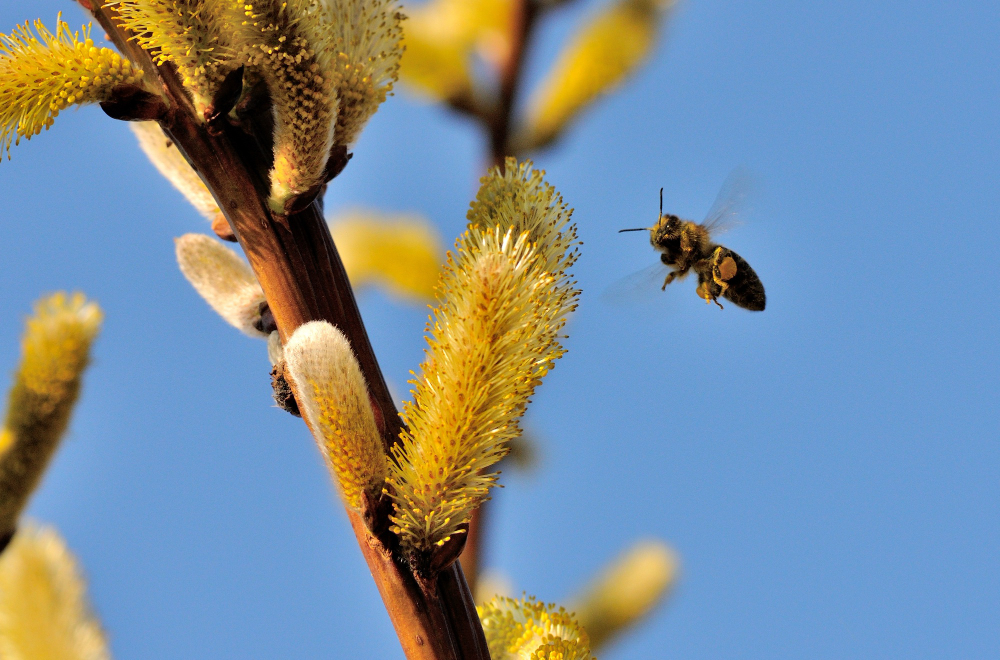Bees, with their distinctive buzzing sound, are more than just honey producers. These small but mighty creatures play a critical role in ecosystems and agriculture, making them indispensable for human survival and biodiversity. In this article, we explore the vital importance of bees as pollinators and the far-reaching impact they have on the environment and our food supply.
Pollination: Nature’s Precious Service
Pollination is the process by which pollen from the male part of a flower (anther) is transferred to the female part (stigma), enabling fertilization and seed production. Bees are among the most efficient and widespread pollinators in the natural world. As they collect nectar to make honey, bees inadvertently transfer pollen from one flower to another, aiding in the reproduction of countless plant species.
Biodiversity and Ecosystem Health
The pollination services provided by bees contribute significantly to biodiversity and ecosystem health. By facilitating plant reproduction, bees help maintain a diverse range of plant species, which, in turn, support various animal species that depend on these plants for food and shelter. A thriving ecosystem relies on the intricate web of pollination interactions, with bees as key players in maintaining the delicate balance.
Food Production: The Bees’ Contribution to Agriculture
Bees are essential for global food production. A large portion of the world’s food crops, including fruits, vegetables, nuts, and oilseeds, depend on pollination by bees. In commercial agriculture, farmers often rely on managed honeybee colonies to ensure bountiful harvests. Without bees’ pollination services, many crops would suffer reduced yields and poor quality, leading to potential food shortages and economic challenges.
Threats to Bee Populations: The Buzzing Crisis
Despite their crucial role, bees face numerous threats that jeopardize their populations. Habitat loss, pesticide use, climate change, and diseases are among the significant factors contributing to declining bee numbers worldwide. The decline of bee populations has alarming consequences for ecosystems and agriculture, raising concerns about food security and biodiversity loss.
Conservation Efforts: Protecting the Pollinators
Recognizing the urgency of the situation, conservation efforts have intensified to protect and support bee populations. Initiatives to create and preserve bee-friendly habitats, reduce pesticide use, and raise awareness about the importance of bees are gaining traction. These efforts aim to safeguard pollinators and foster a harmonious coexistence between bees and human activities.
Biodiversity Beyond Honeybees: The Unsung Pollinators
While honeybees are the most well-known pollinators, numerous other bee species and insects also contribute to pollination. Bumblebees, solitary bees, butterflies, moths, and even some birds and bats play crucial roles in pollination. Ensuring the conservation and protection of these unsung pollinators is equally vital for the health of ecosystems and agricultural productivity.
Empowering Individual Action: A Collective Impact
The plight of bees calls for collective action at both local and global levels. Individuals can contribute to bee conservation by planting pollinator-friendly gardens, avoiding the use of harmful pesticides, and supporting sustainable agricultural practices. Additionally, raising awareness about the significance of bees and their role as pollinators can inspire others to join the effort to protect these remarkable creatures.
A Symphony of Pollination
Bees, with their buzzing symphony of pollination, are an integral part of the intricate web of life on our planet. As essential pollinators, they contribute to the health of ecosystems, enhance biodiversity, and ensure food security for billions of people. Protecting and preserving these tiny but mighty creatures is not just a matter of environmental concern; it is an investment in the well-being of our planet and future generations. By recognizing the vital role of bees and taking action to support their survival, we can ensure a flourishing world where both nature and humanity thrive in harmony.
